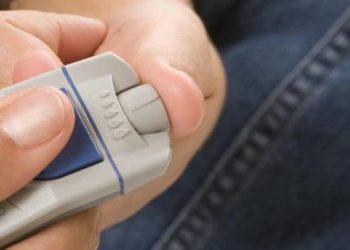Insufficient evidence for behavioral interventions to prevent adolescent drug use
Image: PD
1. According the a new recommendation statement form the U.S. Preventive Services Task Force (USPSTF), there is insufficient evidence to assess the benefits and harms of primary-care based interventions in preventing or reducing drug use among children and adolescents.
Evidence Rating Level: 1 (Excellent)
Study Rundown: Drug use among U.S. adolescents and children is becoming increasingly more commonplace, with around 1 in 10 American adolescents reporting drug use. Based on a review of the current literature, the U.S. Preventive Services Task Force (USPSTF) has recently released a recommendation statement on behavioral interventions for preventing and reducing drug use among youth. They found inadequate evidence for the effectiveness of behavioral interventions in reducing drug use or preventing the initiation of drug use among adolescents. In regards to the harms, there were no studies identified pertaining to the harms of these behavioral interventions. However, the USPSTF concluded that the potential harms were probably small to none. The primary care interventions studied included face-to-face counseling, videos, print materials and computer based tools. Overall, especially given the increasing burden of drug use among youth, this recommendation statement emphasizes the need for further focused research for evidence based primary care interventions for preventing and reducing drug use among children and adolescents.
Click to read the study, published today in Annals of Internal Medicine
Relevant Reading: USPSTF Recommendation Statement on Screening for Illicit Drug Use
In-Depth [recommendation statement]: This 2014 recommendation statement is an update to the 2008 USPSTF statement on screening on screening for illicit drug use. For this recommendation statement, the USPSTF looked at studies pertaining the harms and benefits of primary care interventions for preventing or reducing drug use among youth. The recommendation statement applied to children or adolescents younger that 19 years old, and does not apply to those with a substance use disorder. The review considers illicit drug use and non-medical pharmaceutical use (including both prescription and over-the-counter medications). The review found only 6 fair-good quality studies of primary care behavioral interventions for reducing drug use in adolescents. Interventions included face-to-face counseling, videos, print materials and interactive computer based tools. All studies failed to show a significant improvement in health outcomes.
©2012-2014 2minutemedicine.com. All rights reserved. No works may be reproduced without expressed written consent from 2minutemedicine.com. Disclaimer: We present factual information directly from peer reviewed medical journals. No post should be construed as medical advice and is not intended as such by the authors, editors, staff or by 2minutemedicine.com. PLEASE SEE A HEALTHCARE PROVIDER IN YOUR AREA IF YOU SEEK MEDICAL ADVICE OF ANY SORT.






